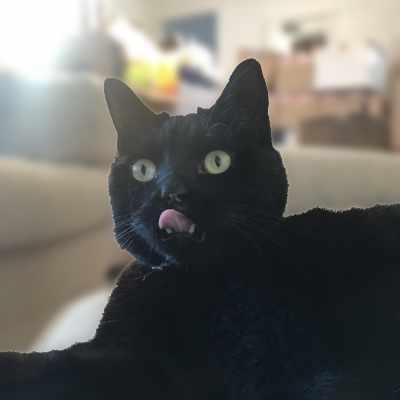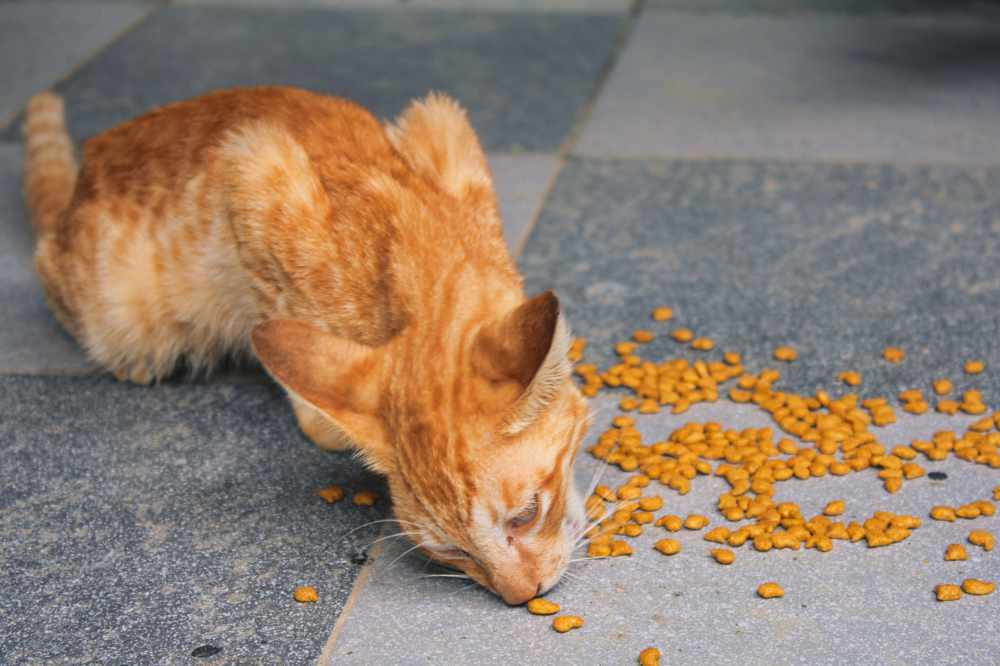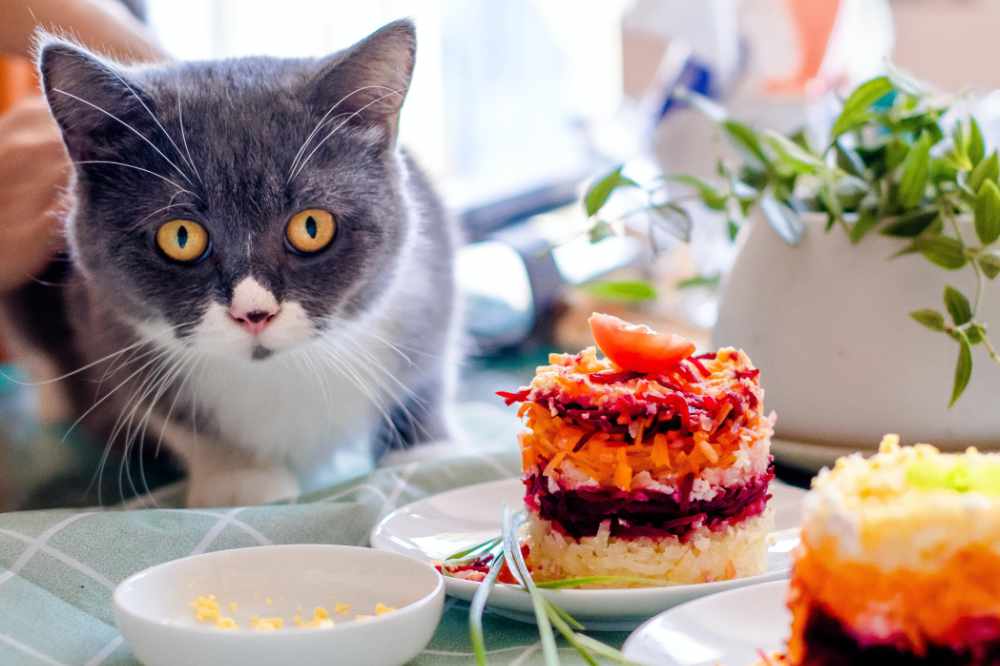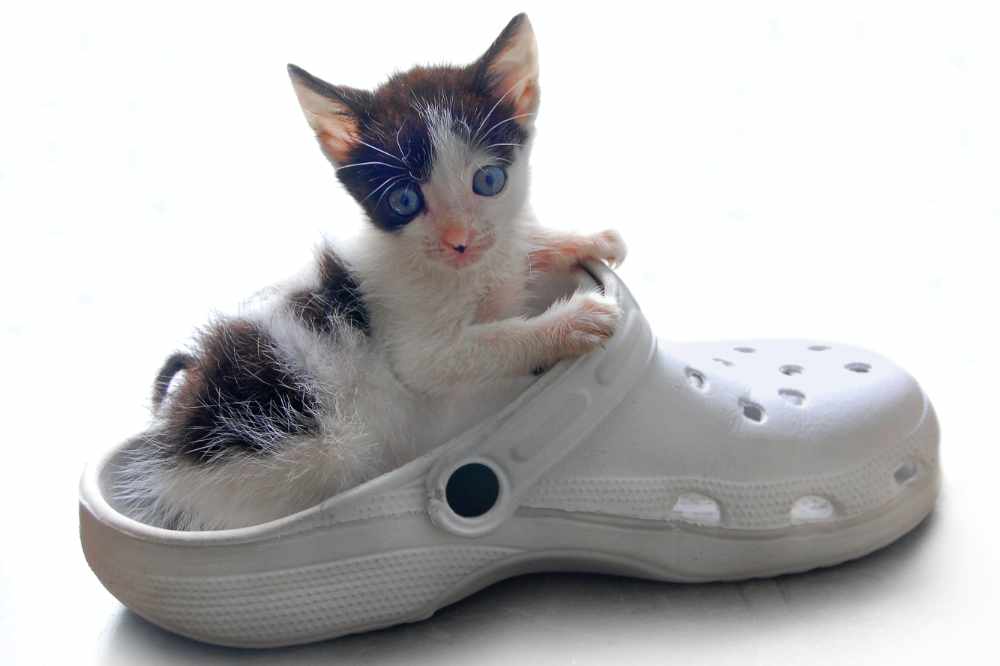Cats are chatty creatures. They love to talk to us in many different ways from letting us know how their day has gone to asking for more food, there’s a different meow for every occasion. You spend a lot of time with your feline companion so chances are you are well aware of what each noise they make means. You end up falling into a routine with your kitty friend and you can tell straight away when something is up.
I remember the first time I encountered my cat’s loud, distressing yowl just before she was sick. It shook me to the core and made my heart stand still for a beat or two. I was so concerned about her that I couldn’t think straight. Not long after this distressing call she vomited on the carpet and then I was REALLY concerned about her. I called the vets and requested an emergency appointment and luckily they said I could take her straight to the clinic.
I learned that my cat meowing before they throw up can be for a huge range of different reasons. She could be scared or distressed or even just confused. As well as this a spell of vomiting can be harmless or it can indicate something more sinister going on.
Here is all I have learned in the years since this incident, why cat’s feel the need to meow before being sick and the most common reasons why your cat may have suddenly started vomiting.
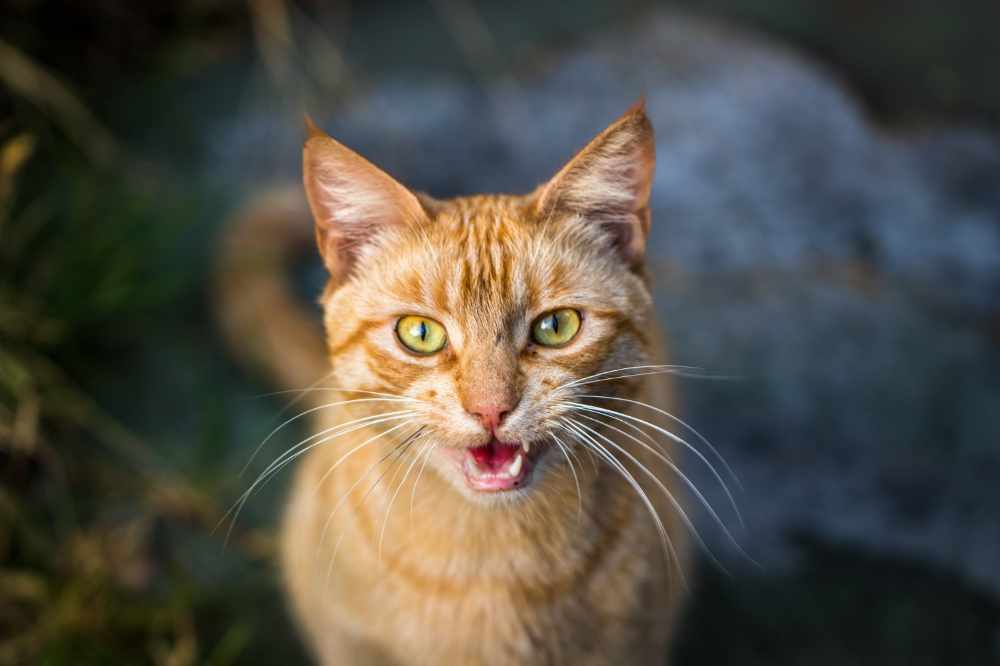
The Pre Vomit Howl
We all know what it feels like to feel nauseous and to be sick. It’s an extremely unpleasant sensation and cats do not enjoy it any more than we do. There are many reasons why your cat yowls before vomiting.
The first reason is that they are trying to tell you that they feel unwell. They are used to coming to you when they have a problem and they are hoping you can solve this for them as well.
The second reason is the sheer discomfort of the feeling as their stomach is contracting. The yowl can be due to pain.
The third reason is they are scared or confused and they want to communicate this with you.
There are many reasons why your cat may be vomiting but if you’re ever unsure about the health of your cat you should always take them to a veterinarian for a check-up.
Eating Too Fast
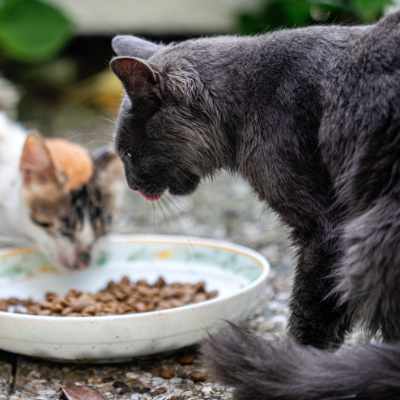
The most common reason why your cat is yowling and then vomiting is that they have eaten their food too quickly. If they are prone to gobbling up their dinner in a matter of seconds then this can be a shock to the stomach. All that food starts to swell up and it’s better to vomit it up than experience stomach pains. This uncomfortable sensation can leave your cat in a temporary state of distress which causes them to yowl right before the vomit happens.
Your cat may be eating too fast because they are getting overly hungry between meals. It can be better to feed them a few small meals throughout the day rather than one big feed to alleviate hunger. Another good solution can be maze feeders or puzzle feeders that help slow down their eating and gives them something entertaining to do as they feed.
Furballs
Cats lick and groom themselves using their unique tongue that has lots of small barbs on the surface, just like a hairbrush. As they do this routine they end up inadvertently swallowing bits of fur and this can sit in the stomach, undigested. Over time the fur builds up and can clump together and at this stage, your cat has no option but to vomit the furball up to empty their stomach.
You can help alleviate this issue by grooming your cat on a daily basis and you can add in dietary supplements to help your cat pass any fur with ease.
Change in Diet
Switching up your cat’s diet can be a good idea if their current food is not suiting them but the downside is that any change in diet can lead to gastrointestinal distress. A switch-up in food type, if done too quickly, can lead to vomiting and even diarrhoea. This can happen even if you simply change the flavour of the food or if the company changes their ingredients.
It’s always a good idea to gradually introduce a new food type to your pet by mixing the new food in with the old food, starting at around 10% new to 90% old food. Adjust this ratio over one to two weeks until your cat is fully weaned onto the new kind of food.
Parasites
It’s never a nice thing to think about but internal parasites are really common in pet cats. These little critters can absolutely cause your cat to feel unwell and sickness is a common symptom.
As well as catching these from contact with other cats, mother cats can pass on worms to their kittens in the womb and even through breast milk when feeding their young. Worms can lay dormant in your cat and re-emerge at times of stress so repeated treatments are often required to get on top of an infection. Cats can even catch worms from flea infestations or if another cat poops in your garden so few cats are exempt from parasites.
There are lots of different kinds of intestinal parasites so it’s worth speaking to your veterinarian to find out which ones your cat is at risk of catching and which treatments are best suited to help protect your cat.
Stress
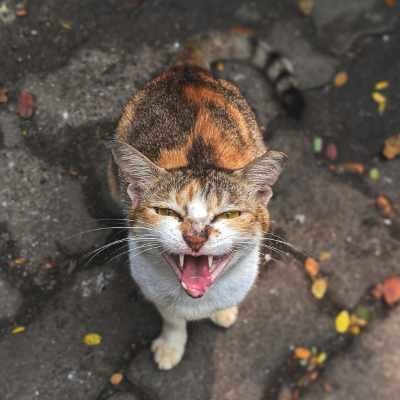
Some cats are very stressy by nature and any changes in their environment are a sure way to get them feeling out of sorts. In order for the body to work effectively to digest food it needs to be in a state of rest. This is the exact opposite of stress.
A stressed-out cat is going to be more prone to vomiting than a relaxed kitty so if your cat fits this description then it’s a good idea to try and address any factors that could be adding stress. Pheromone diffusers or anti-anxiety supplements, collars and sprays can really help if your cat is stress vomiting.
Obstruction
Some cats are prone to chewing on or eating things that do not belong in any mouth. Solid objects, bits of plastic, or even pieces of string can all too easily be accidentally swallowed and may end up leading to an obstruction somewhere internally. Obstructions cause pain and vomiting so can easily lead to your cat yowling and throwing up afterwards.
If you have any suspicion at all that this could be the case take your cat to a veterinarian immediately. Gastrointestinal obstructions are a medical emergency and your cat will need life-saving surgery to fix the problem.
Kidney Disease
Cats have very specialised kidneys that work very effectively to extract salts and metabolic by-products from their blood. They can maintain a good level of hydration easily when their kidneys are working well but if things end up tipping out of balance they can quickly succumb to kidney disease. This can be caused by lots of different things and is a relatively common condition in older cats.
Weight loss, excessive drinking, lack of appetite and vomiting are all signs that your cat may have kidney issues. Your vet will diagnose this problem by running blood or urine tests and then they will discuss the best treatment plan to help take the pressure off your cat’s kidneys.
Hyperthyroid
The thyroid gland is a small gland that sits in your cat’s throat and produces a hormone that regulates your cat’s metabolism. This thyroid hormone is sometimes overproduced for many different reasons. A tumour on the thyroid gland, a brain tumour, or inflammation of the gland are all potential causes of too much thyroid hormone. Hyperthyroid is another word to describe this condition.
Too much thyroid hormone causes decreases in muscle mass, increased appetite and weight loss and behaviour changes in your cat. It can also cause nausea and even lead to heart disease. It can cause cats to be more vocal than usual and this can pre-empt vomiting episodes.
Hyperthyroidism is treatable in cats with daily medications and can even be cured by surgery or radioactive iodine treatment. Your vet will diagnose the condition by carrying out a clinical exam and then running a blood test to assess thyroid hormone levels in your cat’s blood. They will then be able to advise you on the best treatment plan given your cat’s symptoms.
Diabetes
Just as we humans can end up suffering from diabetes, cats can also develop this condition. Diabetes happens when the body’s own production of the hormone insulin is disrupted in some manner. Without insulin working properly, the cells of the body can’t absorb glucose so this builds up in the bloodstream. If blood glucose remains too high for too long it eventually can lead to seizures, coma and death. In the early stages of the disease, you may notice your cat drinking more than usual and nausea is really common, This can put them off their food so they lose weight and vomiting is not uncommon.
Thankfully, diabetes is treatable. Your cat will need daily injections of insulin as directed by your veterinary surgeon. It can sound scary initially but with some practice, it’s actually quite simple to do. Your vet will diagnose your cat by performing a blood or urine test and will then discuss the treatment plan in depth with you.
Conclusion
There are a huge variety of reasons why your cat may be making a strange meow before throwing up. They could be stressed, in pain, or confused and may be seeking your support whilst they feel so unwell. There are a LOT of reasons why your cat may be vomiting and only some of these reasons have been covered here. As always, if you have any concerns at all about the health of your cat take them to a veterinarian as soon as possible.
